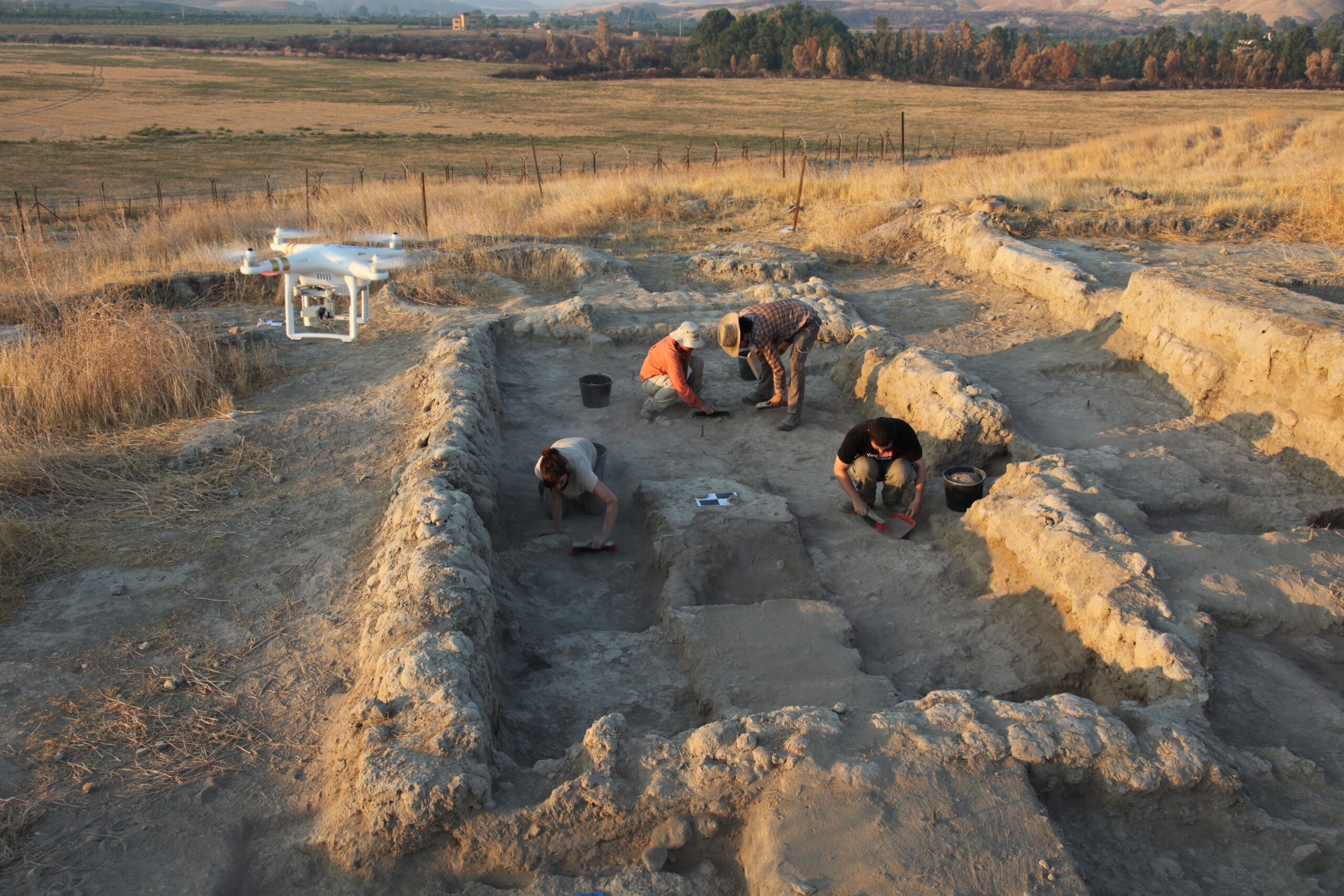The Technion and Haifa University held a scientific conference on Wednesday as part of a first-of-its-kind collaboration on technological methods in archeology and the study of marine cultures. Eight archaeologists who are already utilizing technology in their studies gave lectures describing their work. Archaeologists from the University of Haifa presented their research on DNA extraction of ancient grape seeds to identify their closest living relative, biochemical analysis of animal waste, AI and algorithms to identify flint and tooth marks on animal bones from 40,000 years ago, and chemical analysis to identify cannabis resin on an ancient altar.
While individual archaeologists have utilized technology before on specific projects, this is the first formal research collaboration of its kind, bringing together the School of Archeology and Maritime Cultures at the University of Haifa and the Technion. The two institutions will share advanced equipment and fund eight research positions from master’s to post-doctorate for students who undertake research that bridges the disciplines.
According to Prof. Israel Finkelstein, Head of the School of Archeology and Maritime Cultures at the University of Haifa, “there is no archaeological research today without exact sciences and technology – starting of course with carbon 14 tests for dating, through isotopic tests to identify the source of metals and ending with genetic sequencing that can identify the origin of groups that lived in the past and in the study of molecular remains in pottery, which helps in locating ancient trade routes.”
“We are establishing a Department of Archeology at the University of Haifa, and there is nothing more natural than cooperation with Technion researchers, who are a few minutes away by cable car,” he added. “This cooperation will boost our understanding of the past and the historical and social processes that happened here thousands of years ago.”
In recent years, archaeology has become multi-disciplinary, combining classical archaeology with advanced scientific and technological tools. This includes DNA tests of bones and other organic materials such as plants, microscopic observation of sediments identifying economic patterns in ancient sites, chemical and molecular tests to identify the origin of tiny cotton fibers, and the use of powerful microscopes to reproduce ancient technological methods – all these have become an integral part of archaeological research.
Innovative methods allow researchers to build 3D models of ancient sites, discover lost secrets with the help of state-of-the-art laser scanners, and the use of artificial intelligence to generate databases that gather enormous information from the abundance of finds that have already been found in the past.
“Archaeology is perhaps the most fascinating subject I know,” Technion Vice President for Research Prof. Kobi Rubinstein said. “Few people are interested in my field, mathematics, but archeology affects a very wide audience because it teaches us who we are and what we are. Research in this field deals with the small details, but it cannot move forward without creating – and seeing – the big picture even when it is clear that in that picture there will also be missing parts.”
The collaboration between the Technion and the School of Archeology and Maritime Cultures at the university will harness the unique abilities of researchers from both institutions to lead groundbreaking and interdisciplinary research, especially in light of the enormous wealth of archaeological finds in Israel. For example, Prof. Guy Bar-Oz from the University of Haifa has been collaborating with Prof. Sima Yaron, Dean of the Faculty of Biotechnology and Food Engineering at the Technion: the two are trying to examine when and how the Salmonella bacteria passed from thousands-year-old chicken eggs to humans and how our ancestors dealt with the new disease.
In addition, Prof. Deborah Cvickel of the University of Haifa and Technion’s Prof. Moris Eisen of the Schulich Faculty of Chemistry are collaborating with the goal of understanding how the ancient seafarers used sails and how they protected them from the wetness and salinity of the seawater and made sure that they were strong and flexible enough. They are focusing their study on the recreation of the 2,500-year-old Maagan Michael II boat found off the coast of Israel.
A course on introduction to archeology is planned to be held within the Humanities Unit at the Technion. The course will be taught by researchers from the School of Archeology and Maritime Cultures of the University of Haifa, with the aim of providing Technion students with an archaeological foundation already in their undergraduate studies. Some 300 Technion students have already enrolled in the course, the Evolution of Humans, in the coming semester. The course will be given at the Technion but is open to students from both institutions with the goal of enhancing collaboration. In the future, scholarships will also be awarded to research students for studies that combine archeology and science.
“The collaboration is the beginning of a process that will allow us to better understand the past and it will turn Haifa, with its two leading research institutions, into one of the most prominent cities in the world in the study of human history,” the partners concluded.



